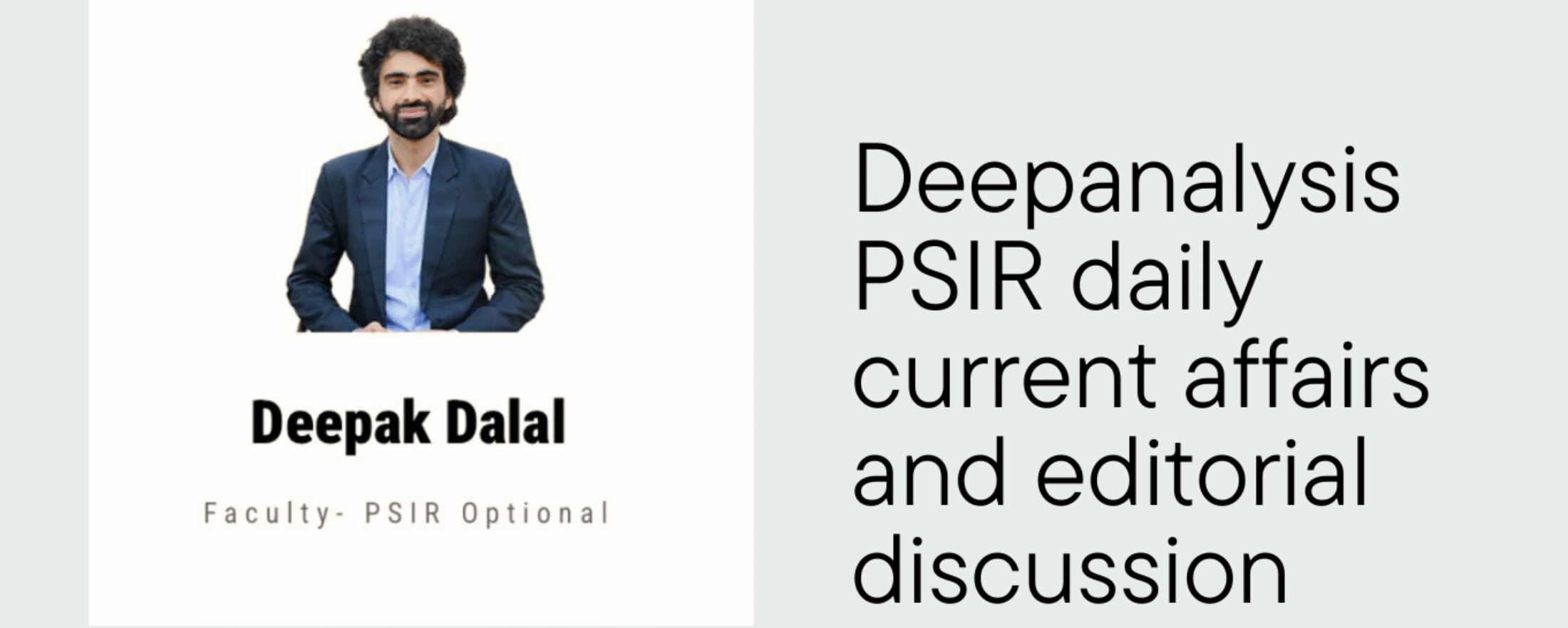PSIR daily current affairs Is U.S. imperialism a threat to world?
Is U.S. imperialism a threat to world?
-
PYQs linkage:
- Critically examine the decline of the United States of America as a hegemon and its implications for the changing international political order. 15(2021)
- Discus the various constraints on American hegemony today. Which of these are likely to become more prominent in the future?15(2023)
- Do you agree with the view that the USA uses NATO as a traditional tool of strategy to perpetuate its hegemony in the world? 15(2024)
-
Theory application:
Neo realist theory (Offensive realism), Hegemonic stability theory, neo liberalism.
- Concepts and keywords: unilateral military intervention, Weapons of Mass destruction, imperialism, decline in U.S Hegemony, crisis of neoliberalism, structured rivalry, new cold war, tariff war, bipolar, multipolar global order, Minilateralisms,
Important facts:
- The U.S. is a $30 trillion economy and China $20 trillion economy
important quotes or statements:
“in an age where we have multilateralism failing, we need alternatives. Minilateralisms and alternatives like the Global South have a responsibility to come together, talk about the issues that much of the humanity faces, and do something about it.”
“the failure of multilateralism is another reason why the Global south must survive.” Happymon Jacob.
-
Brief analysis and key points from the news or editorial:
- Components of U.S. Hegemony
Reasons of its decline
- Decline of its power in international politics.
- Strategic threat from China, rise of China getting manifested in its economic power, technological progress ad global political influence.
Efforts of the U.S to maintain its hegemony
- Engaged in aggressive military behaviour against regimes that it has issues with.
- Violation of international order and international laws
- Imposing tariffs
Effects on international politics
- Random and reckless use of power by U.S creating chaos in international order
- Trade or tariffs war, reciprocal tariffs impacting global south adversely.
India’s dimension
- Great power consensus (when U.S and China have consensus) and great power competition, both are problematic for India and global south. (Making strategic choices more difficult in such circumstances)
- Multipolar world is more useful, where more consensus building and dialogues take place,
- Where UN is not overrules by countries with more power. (respect of international institutions or international law prevail)
- Multipolarity in necessary for following an independent foreign policy and retaining strategic autonomy.
- When we are aligning with the U.S and Israel, we are not in a position to take advantage of the growing multipolarity in the world. However, in neorealist framework, it is self help which can ensure security in an anarchic international system. Thus, India needs to maintain its strategic partnerships with U.S, Russia, France and even Israel.
Way forward
- Having several multilateral arrangements in the international system can offset and balance unipolarity and hegemony, however, India must be careful about too much engagements which may not necessarily lead to anything.
- Minilateralisms and Global south should come together for issues which global community faces and take some action about it.
- India must be able to work out a clear strategy to be part of the mainstream Global South, whether it’s the debt crisis, trade imbalances or climate change.
PYQs for practice:
Discus the various constraints on American hegemony today. Which of these are likely to become more prominent in the future?15(2023)
